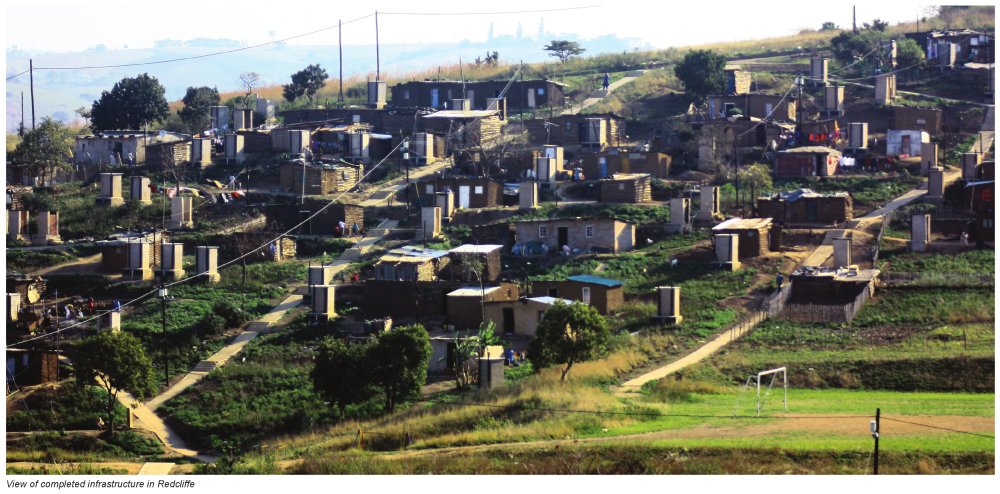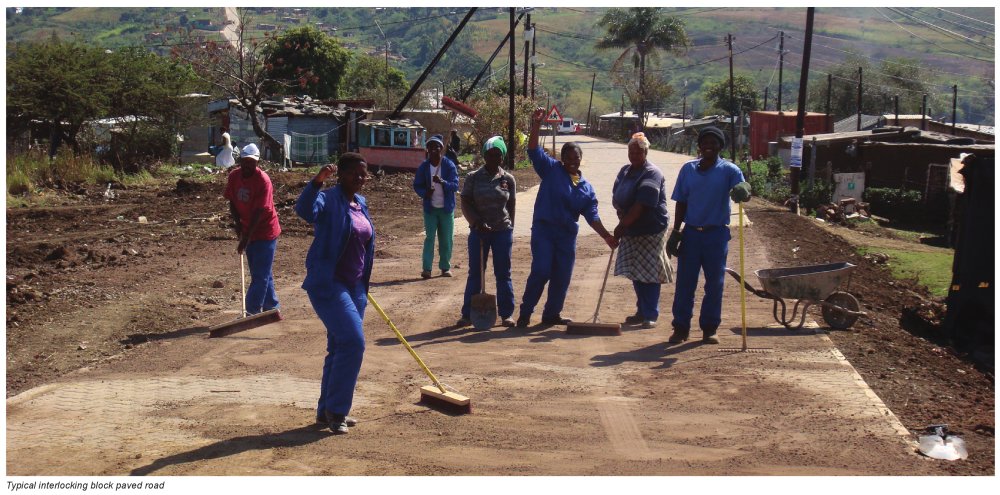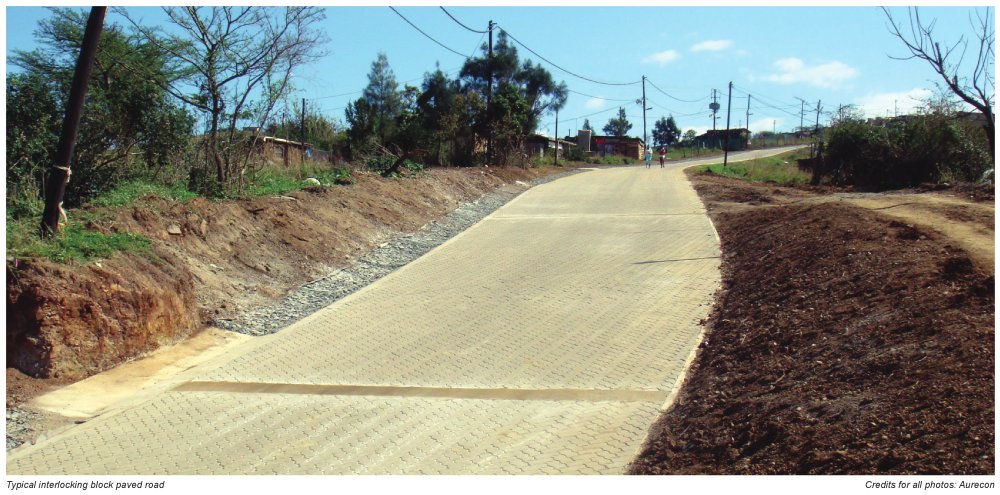You are here
eThekwini Municipality: Interim Services Programme (Panel 2)
ETHEKWINI MUNICIPALITY: INTERIM SERVICES PROGRAMME
Pilot Projects
Preliminary Precinct-level Master Plans
Preliminary master plans were developed for each of the informal settlement precincts in which the seven targeted pilot projects were located in order to ensure that development occurs in a spatially coherent fashion and that the precincts become integrated with the rest of the City. The plans defined main movement corridors and activity nodes and enabled the prioritisation of those roads most critical from an urban development perspective. They will also inform more effective provision of key social facilities such as fire and police stations, clinics, schools, sportsfields and community halls.
Overview of Roads and Footpaths
An acceptable interim Level of Service in respect of Roads, Footpaths and Storm-water Drainage was established with the various City line departments in order to make effective use of the limited budget currently available. The following factors were taken into consideration in designing the network:
- Where possible, to provide access into the settlements for Emergency Services (e.g. Fire, Ambulance) and Durban Solid Waste for solid waste removal.
- To ensure that the maximum gradient for Fire Fighting trucks was not exceeded.
- Pavement layers consisting of gravel roads, single seal chip and spray or slurry seal were not acceptable as they would lead to short term maintenance being necessary.
- All roads are designed and constructed in line with appropriate engineering codes and practises and in conjunction with their access hierarchy.
- Allowance was to be made for turning heads and passing facilities.
Overview of Electricity Implementation
- Electrical infrastructure is funded/subsidized by the Department of Energy.
- Once roads and footpaths are built, it takes an average of two months for the design and a further two months for installation for a development of 200 sites.
- Aggressive marketing ensures that customers are informed on site about the application process, requirements for electrical connections and the benefits of legal connections as opposed to illegal connections especially with regards to safety and power outages.
Status of Road Implementation
To date, the eThekwini Municipality has authorized the implementation of 3km of roads and 3.5km of footpaths with accompanying storm-water controls in three informal settlements (Kenville, Redcliffe and Greylands) comprising over 3800 households, and has successfully completed two of the projects at the end of August 2011. Labour as well as Community Liaison Officers were sourced from the local communities. The use of local businesses to provide materials and security services was encouraged, stimulating small business development and ensuring that the local economy benefited where possible. A further four informal settlements (Lower Malukazi, Dassenhoek D, Umlazi MX1 and Umlazi Peace Valley) are currently being designed and construction is programmed to commence in 2012.
Sustainable Livelihoods Programme
A Sustainable Livelihoods Programme was incorporated to build stronger community responsibility and ‘self-help’ as well as to facilitate a better relationship between the urban poor and the Municipality. Practical action plans were developed by local residents with the aim of empowering them to play a more effective role in a range of spheres such as special needs (e.g. home based care, crèches and HIV Aids), informal enterprise and food security. This also assisted to identify and define opportunities for community based maintenance and more effective emergency responses (e.g. relating to fire protection).
Going Forward
Informal settlements have been grouped together into logical ‘clusters’ or precincts in order to enable more effective and sustainable urban planning. A preliminary precinct-level master plan (as per the pilot projects) will be developed for each of the remaining precincts to ensure that future road networks conform to a logical longterm urban development plan and do not conflict with layout plans for future housing delivery.
Back to Panel 1.
ETHEKWINI MUNICIPALITY, AURECON AND PROJECT PREPARATION TRUST


